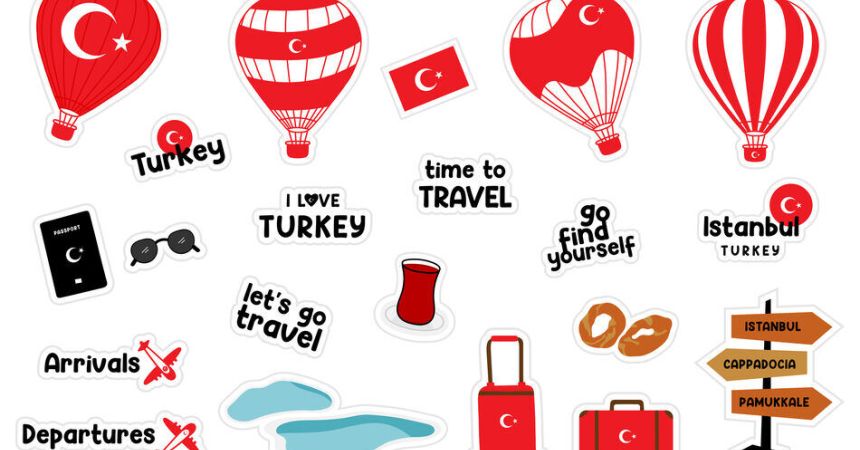
Currency Used in Turkey: What You Need
Turkey, a vibrant country straddling two continents, offers travelers a rich blend of cultures, landscapes, and experiences. Whether you’re exploring Istanbul, the ancient ruins of Ephesus, or the stunning landscapes of Cappadocia, understanding the currency used in Turkey is essential for a smooth and enjoyable trip. This comprehensive guide will provide you with detailed information about the Turkish currency, how to handle money while traveling, and tips for managing your finances during your visit.
Understanding the Turkish Lira
The Turkish Lira Overview
The official currency of Turkey is the Turkish Lira, abbreviated as TRY or symbolized as ₺. The lira has been Turkey’s currency since 1923, replacing the Ottoman lira following the establishment of the Republic of Turkey. Over the years, the Turkish Lira has undergone several changes, including a significant revaluation in 2005 when the New Turkish Lira (TRY) replaced the old Turkish Lira (TRL).
Currency Symbols and Denominations
- Symbol: ₺ (Turkish Lira symbol)
- ISO Code: TRY
- Subunits: 1 lira = 100 kuruş
The Turkish Lira is available in the following denominations:
- Coins:
- 25 kuruş
- 50 kuruş
- 1 lira
- Banknotes:
- 5 lira
- 10 lira
- 20 lira
- 50 lira
- 100 lira
- 200 lira
Handling Currency While Traveling
Exchanging Money
- Currency Exchange Offices: Known as "Döviz Bürosu," these are widely available in major cities, airports, and tourist areas. They offer competitive rates but check the rates and fees before exchanging money.
- Banks: Banks offer currency exchange services, though they may have limited hours and higher fees compared to exchange offices.
- ATMs: Automated Teller Machines (ATMs) are a convenient way to withdraw Turkish Lira. Most ATMs accept international credit and debit cards. Be mindful of foreign transaction fees and potential withdrawal limits.
Credit and Debit Cards
- Acceptance: Credit and debit cards are widely accepted in Turkey, especially in urban areas, hotels, restaurants, and major retail stores. Visa and MasterCard are the most commonly accepted.
- Inform Your Bank: Before traveling, inform your bank about your trip to avoid having your card blocked for suspicious activity.
- Foreign Transaction Fees: Check with your card issuer about foreign transaction fees. Some banks offer cards with no foreign transaction fees, which can be beneficial for travelers.
Mobile Payments
- Digital Wallets: Mobile payment options like Apple Pay, Google Pay, and Turkish payment apps (e.g., BKM Express) are gaining popularity in Turkey. Check if your mobile payment app is accepted in the places you plan to visit.
Managing Your Finances
Budgeting for Your Trip to Turkey
- Accommodation: Turkey offers a range of accommodation options, from budget hostels to luxury hotels. Consider your budget when booking a trip to Turkey and check for any additional fees.
- Food and Dining: Dining out in Turkey can be affordable, with options ranging from street food to fine dining. Expect to spend around 1000-2000 TRY per meal at mid-range restaurants.
- Transportation: Public transportation is economical, with options including buses, trams, and ferries. Taxis are also widely available but ensure that the meter is running to avoid overcharging.
Tipping and Gratuities
- Restaurants: Tipping is customary but not mandatory. A 5-10% tip is generally appreciated in restaurants.
- Hotel Staff: It is polite to leave a small tip (50-100 TRY) for hotel staff, such as housekeepers and bellboys.
- Taxis: Rounding up the fare or adding a small tip is a common practice.
Safety and Security
- Currency Safety: Keep your money and valuables secure. Use hotel safes or locked luggage for storing cash and important documents.
- Scams: Be cautious of exchange offices or individuals offering unusually favorable exchange rates. Always use reputable sources for exchanging money.
Currency Exchange and ATM Tips
Exchange Rates
- Check Rates: Monitor exchange rates before your trip to get an idea of the value of the Turkish Lira compared to your home currency. Websites and currency converter apps can provide up-to-date rates.
- Avoid Airport Exchanges: Currency exchange services at airports may offer less favorable rates. Exchange a small amount for immediate needs and use local exchange offices or ATMs for the bulk of your currency needs.

Using ATMs
- ATM Fees: Be aware of both the fees charged by your bank and the ATM operator. Choose ATMs that display your bank’s logo to reduce fees.
- Daily Withdrawal Limits: ATMs may have daily withdrawal limits. Plan accordingly if you need to withdraw large amounts of cash.
Special Considerations
Traveling from the Eurozone or Other Countries
- Currency Conversion: If you’re traveling from a country within the Eurozone or other countries with different currencies, be prepared for conversion costs. Consider exchanging some currency before your trip to avoid unfavorable rates upon arrival.
Shopping and Souvenirs
- Local Markets: When shopping in local markets or souvenir shops, cash is often preferred. Ensure you have a small amount of Turkish Lira for purchases in these settings.
- Price Negotiation: In some markets, prices may be negotiable. Having cash on hand can make the process smoother.
Large Purchases
- Credit Cards for Big Purchases: For larger transactions, such as hotel bills or guided tours, using a credit card can be more convenient and may offer additional protection.
Additional Resources and Tools
Currency Converter Apps
- Apps: Download currency converter apps to keep track of exchange rates and quickly convert amounts. Some popular options include XE Currency and Currency Converter Plus.
Local Banking Services
- Bank Services: If you need banking services, such as wiring money or obtaining a local SIM card, visit a local bank branch. Major banks in Turkey include Garanti BBVA, Isbank, and Ziraat Bankası.
Emergency Contacts
- Bank Contacts: Keep contact information for your bank or card issuer handy in case of issues with your card or account while traveling.
Cultural and Practical Tips
Local Currency Etiquette
- Respect Local Customs: When handling money, use both hands to pass or receive notes as a sign of respect. Avoid making a mess of your currency or showing large amounts of cash in public.
Currency Exchange Locations
- Reputable Exchange Offices: Use well-known exchange offices or banks for currency exchange. Verify rates and fees before making a transaction.
Digital Payments
- Acceptance: While digital payments are becoming more common, carry some cash for smaller establishments or rural areas where card payments might not be accepted.
Family-Friendly Turkey Vacation Packages
Understanding the currency used in Turkey and managing your finances effectively will ensure a smooth and enjoyable travel experience. The Turkish Lira (TRY) is the official currency, and you’ll find various options for exchanging money, including currency exchange offices, banks, and ATMs. By being aware of exchange rates, budgeting appropriately, and following safety tips, you’ll be well-prepared to handle your money during your Turkish adventure. With this comprehensive guide, you can confidently navigate Turkey’s financial landscape and focus on exploring the country’s rich history, culture, and natural beauty.



